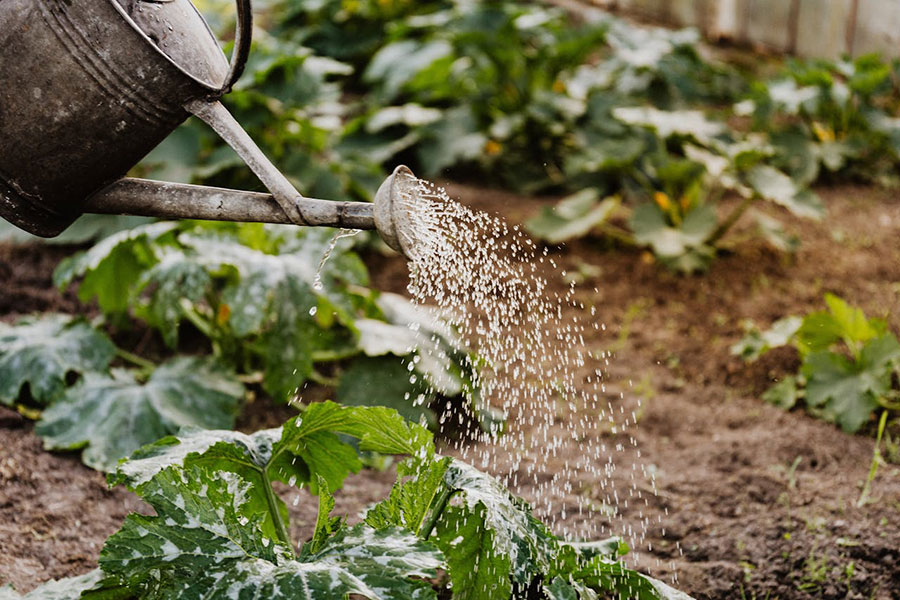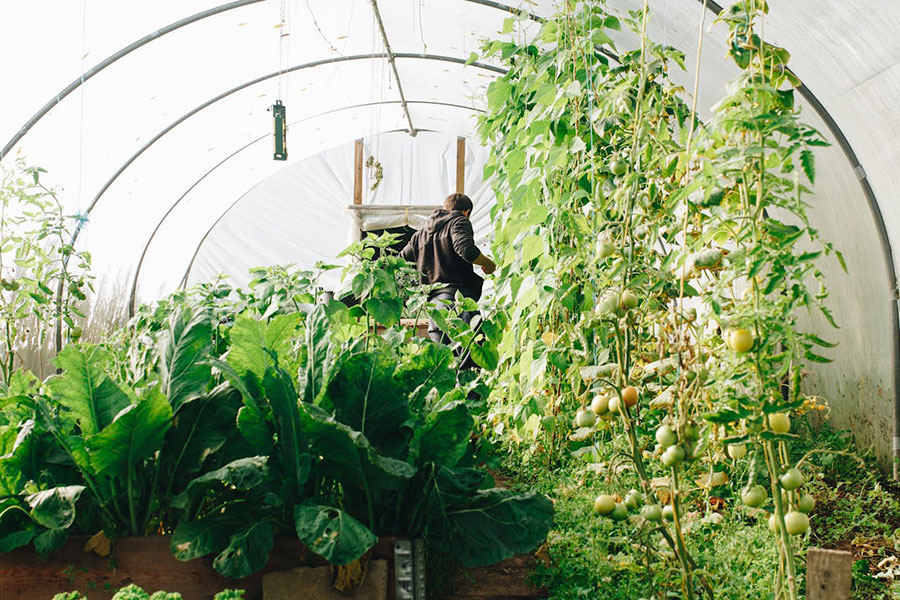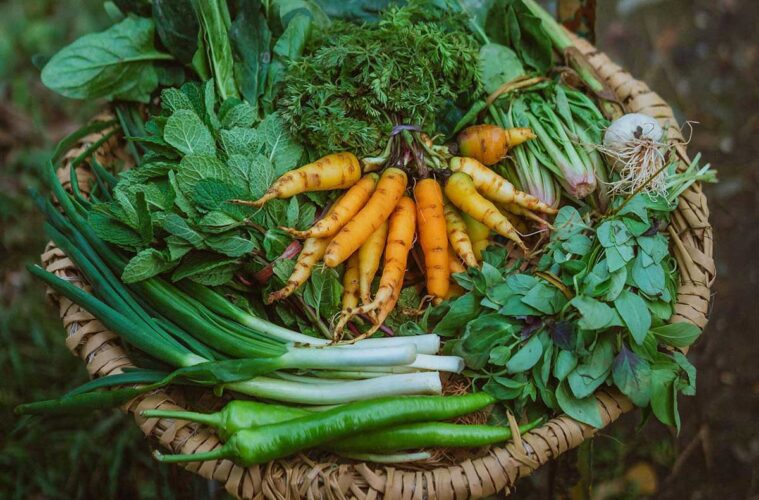Growing your own organic vegetables at home is a rewarding and sustainable way to enjoy fresh, chemical-free produce while reducing your grocery bills. In the UK, where the climate can be unpredictable, successful home gardening requires careful planning, the right techniques, and patience. Whether you have a garden, an allotment, or even a small balcony, you can grow a variety of organic vegetables with the right approach.
In this guide, we’ll explore how to start your organic vegetable garden, the best crops to grow in the UK, and practical tips to help you succeed.
1. Why Grow Your Own Organic Vegetables?
1.1 Health Benefits
Organic vegetables are free from synthetic pesticides and fertilisers, making them healthier to eat. They often contain more nutrients than conventionally grown vegetables and are free from harmful chemicals that can accumulate in the body over time.
1.2 Cost Savings
While starting an organic vegetable garden requires some initial investment, it can save you a significant amount of money in the long run. Fresh organic produce is often expensive in supermarkets, but growing your own allows you to enjoy a steady supply without the hefty price tag.
1.3 Environmental Benefits
Growing your own vegetables reduces your carbon footprint. You eliminate the need for transportation, packaging, and intensive farming practices that contribute to pollution and soil degradation. Additionally, home gardening promotes biodiversity and supports local ecosystems.
1.4 Satisfaction and Wellbeing
Gardening is a fulfilling and stress-relieving activity. Tending to your plants, watching them grow, and harvesting your own food can be incredibly rewarding. It also encourages outdoor activity and can be a great way to teach children about sustainability and healthy eating.
2. Planning Your Organic Vegetable Garden
2.1 Choosing the Right Location
The success of your vegetable garden depends largely on its location. Most vegetables require at least 6-8 hours of sunlight per day, so choose a sunny spot in your garden. If you have limited space, consider vertical gardening or using pots and containers on a patio or balcony.

How to Grow Your Own Organic Vegetables at Home in the UK
2.2 Understanding Your Soil
Good soil is the foundation of any successful organic garden. The best soil for vegetable growing is loamy, well-draining, and rich in organic matter. You can test your soil’s pH using a simple kit available at garden centres. Most vegetables prefer a slightly acidic to neutral pH (between 6.0 and 7.0).
If your soil is too heavy (clay) or too sandy, improve it by adding organic compost or well-rotted manure to enhance its fertility and structure.
2.3 Choosing What to Grow
For beginners, it’s best to start with easy-to-grow vegetables that thrive in the UK climate. Some great choices include:
- Leafy Greens: Lettuce, spinach, kale, Swiss chard
- Root Vegetables: Carrots, beetroot, radishes, potatoes
- Legumes: Peas, broad beans, runner beans
- Alliums: Onions, garlic, spring onions, leeks
- Fruit Vegetables: Tomatoes, courgettes, peppers
- Herbs: Basil, parsley, chives, rosemary, mint
3. Preparing Your Garden for Organic Growing
3.1 Making Your Own Compost
Compost is essential for organic gardening. It provides nutrients to plants and improves soil structure. You can make compost at home using:
- Vegetable peelings
- Coffee grounds and tea bags
- Grass clippings and leaves
- Cardboard and shredded paper
- Eggshells
Avoid adding meat, dairy, and oily food scraps, as these attract pests. Turn your compost pile every few weeks to aerate it and speed up decomposition.
3.2 Crop Rotation
Rotating crops each year prevents the build-up of pests and diseases in the soil. For example, avoid planting tomatoes in the same spot every year, as this can lead to soil-borne diseases. A simple rotation system includes:
- Year 1: Leafy greens → Year 2: Root crops → Year 3: Legumes → Year 4: Fruit vegetables
3.3 Natural Pest Control
To keep pests at bay without chemicals, use companion planting and natural predators:
- Marigolds repel aphids and whiteflies
- Nasturtiums deter blackfly from beans
- Ladybirds and lacewings feed on aphids
- Encourage hedgehogs and frogs to help control slugs
You can also use homemade organic sprays, such as a garlic or chilli spray, to deter insects.
4. Planting and Caring for Your Organic Vegetables
4.1 Sowing Seeds vs. Buying Seedlings
- Seeds are cheaper but require more time and effort
- Seedlings are easier for beginners and offer a head start
Always buy organic seeds or heirloom varieties to ensure they are free from chemical treatments.
4.2 Watering Wisely
- Water in the early morning or late evening to prevent evaporation
- Use a watering can with a rose head to avoid soil erosion
- Collect rainwater to use in dry periods
- Mulch around plants to retain moisture and suppress weeds
4.3 Feeding Your Plants Organically
Instead of chemical fertilisers, use:
- Compost tea (soak compost in water for a nutrient-rich feed)
- Seaweed feed (provides essential trace minerals)
- Nettle or comfrey tea (rich in nitrogen for leafy greens)
5. Harvesting and Storing Your Produce
5.1 When to Harvest
Each vegetable has its own harvesting time, but a general rule is to pick when the plant is at its peak for taste and texture. Some crops, like lettuce and spinach, can be harvested leaf by leaf for continuous growth.
5.2 Storing Your Harvest
- Store root vegetables in a cool, dark place
- Freeze excess beans, peas, and courgettes
- Dry or freeze herbs for long-term use
- Make chutneys and preserves with surplus produce
6. Gardening All Year Round: Seasonal Growing Guide

How to Grow Your Own Organic Vegetables at Home in the UK
Even in the UK, you can grow vegetables year-round by planning your planting times:
| Season | Best Vegetables to Grow |
|---|---|
| Spring | Peas, lettuce, radishes, onions, carrots |
| Summer | Tomatoes, courgettes, cucumbers, beans |
| Autumn | Kale, spinach, broccoli, beetroots |
| Winter | Garlic, leeks, winter lettuces, Brussels sprouts |
For winter growing, consider using cold frames, cloches, or greenhouses to protect plants from frost.
7. Conclusion: Start Your Organic Garden Today!
Growing your own organic vegetables at home in the UK is both a sustainable and satisfying activity. By following these steps, you can enjoy fresh, chemical-free produce all year round, save money, and contribute positively to the environment.
Even if you only have a small space, container gardening or vertical growing methods can help you maximise your yields. Start small, experiment, and soon you’ll be enjoying delicious homegrown vegetables straight from your own organic garden!

